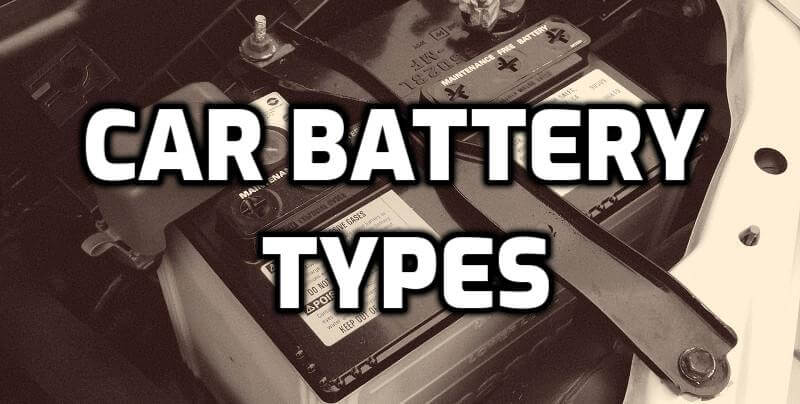Easily Understand Car Battery Types

If you are in the market for a new car battery, you may feel overwhelmed by all of the different types of batteries available. Do you know what group size your vehicle is? Is it AGM, Gel Cell or Standard flooded lead-acid type? If not, don’t worry! We have compiled some information on each type so that you can make an informed decision on which one to buy.
Calcium Batteries
Calcium batteries are a standard flooded type that is used in many different types of vehicles. They have an average lifespan and can be easily recycled at the end of their life span. These batteries also come with a decent warranty and depending on the company you purchase them from, and they may even pay for recycling costs when it comes time to replace this battery.
Calcium batteries are a good choice for those who do not want to deal with maintenance or extra costs associated with batteries. This is also the most popular type of battery that we sell at Battery Solutions Canada!
Deep Cycle Battery
A deep cycle battery is a type of calcium battery that has been manufactured with thicker plates. This allows the battery to last for longer periods of time without having to be replaced and it also makes this type more expensive than standard flooded lead-acid batteries. These can usually go up to 400 cycles, whereas regular calcium batteries may only get around 200 before needing to be replaced.
A deep cycle battery is a good choice for those who are looking to save money in the long run and don’t mind doing their own maintenance when needed. They make sense if you plan on using your batteries over multiple summers or take out camping often throughout the year.
These types of batteries also do well in off-grid solar systems because they can go for longer periods of time without having to be charged. Deep cycle batteries are best used in recreational vehicles or boats that don’t get driven often and sit idle over the winter months. They aren’t great for cars since you need your battery to last you more than six months, even though these types of batteries do well in colder climates.
Wet Cell Batteries
Wet cell batteries are another type of calcium battery, but these ones need to be filled with distilled water. If you choose this option for your vehicle, then it is important to make sure that the plates inside don’t dry out by keeping them topped up at all times. These types of batteries come in both standard and deep cycle options as well.
Wet cell batteries are best used in warmer climates where you need your battery to last longer than six months. These types of batteries come at a higher price point, but they also have the longest life span compared to other calcium lead-acid options on the market today.
AGM Batteries
An AGM battery is an absorbed glass mat type of lead-acid calcium battery. They are similar to wet cell options, but they don’t require the user to top them up with water and these types also do not need any maintenance throughout their lifespan.
AGM batteries come at a higher price point than other flooded lead-acid options because this type of battery is more efficient and lasts longer. AGM batteries are also suitable for use in colder climates because they don’t freeze over during the winter months as wet cell options do.
AGM batteries are best used if you get your vehicle out less than six times per year or live somewhere where it snows regularly throughout the winter season. They come at a higher price point, but they do have the longest lifespan of all lead-acid calcium options on the market today.
EFB Battery
EFB batteries are another type of calcium lead-acid battery that comes with a specific design. This type of battery is known for having the longest lifespan on the market, but it also has a higher price point than regular flooded options do.
When choosing this option over wet cell or AGM types, you have to keep in mind that these batteries are not designed to be recharged once they hit 50% capacity. If you want an EFB battery, then it is best used as a backup power source that will only get turned on when the main one fails.
Conclusion
As you can see, there are a variety of lead-acid calcium batteries that provide different benefits. If you plan on using your vehicle or boat for multiple purposes throughout the year and want to save money in the long run, then consider getting a deep-cycle battery. These types do well if they aren’t used often because they will help prolong the battery’s life.
If you live somewhere with a colder climate and don’t plan to use your vehicle much during winter, consider getting an AGM battery instead because it will perform better in these conditions than wet cell options.
Frequently Asked Questions (FAQ)
When it comes to car batteries, there are a few things that you should keep in mind in order to make sure that you’re getting the most bang for your buck. First and foremost, you’ll want to make sure that you’re choosing a battery that is designed for your specific make and model of car. Secondly, you should consider the climate in which you’ll be using your car the most often – if you live in an area with extreme heat or cold, you’ll need a battery that can withstand those conditions. Finally, take a look at reviews from other drivers to get an idea of which batteries have the longest lifespan.
Related Article
